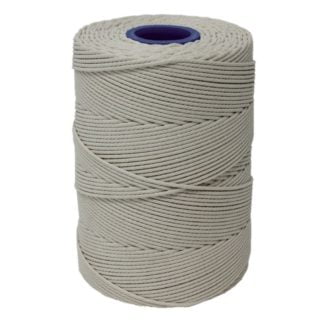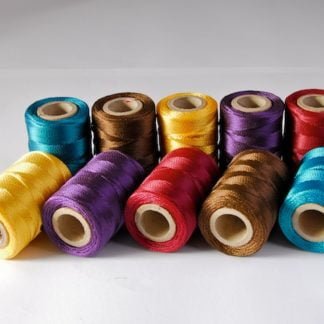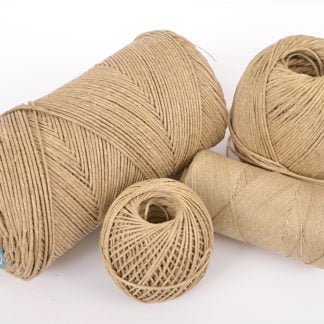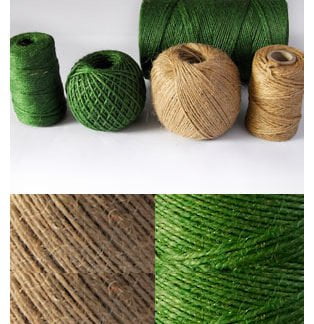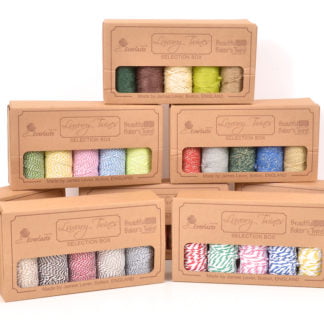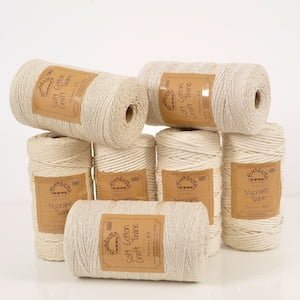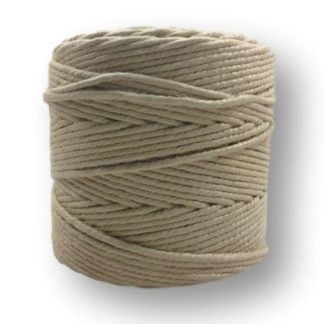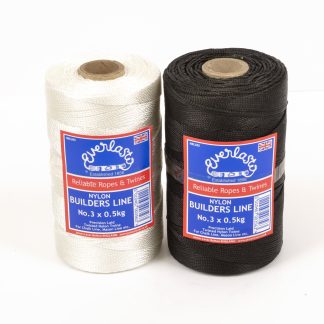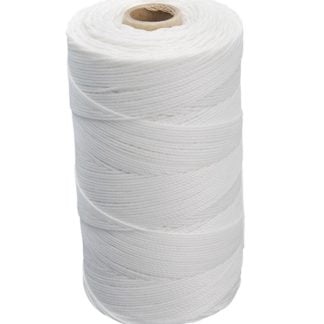Twines
If you’re looking for twines, you’ve come to the perfect place. Here at Rope Source, we stock one of the largest ranges of twines available online. We have twine for almost any application, and our range includes craft twines, garden twines, packing twines, parcel twines, butcher’s twines, builder’s twines, baker’s twines, macrame twines, whipping twines and present-tying twines – the choice is endless.
All of our twines are made to the highest standards using high-quality materials, including natural and biodegradable cotton, sisal, rayon and jute. Not only that, we also stock hard-wearing and long-lasting synthetic fibres, such as nylon and polypropylene.
Whether you are looking for natural cotton string or jute craft twines, you are sure to find it at Rope Source. Our twines come in various shapes and sizes and whether you need a small ball, a large spool or even twine in a tin, you can find the correct make-up with us.
For any more info, or requests for sizes and spools, call us on 01204 897642 or contact us today.
-

Christmas Twines (55)
-

Baker's Twine (218)
-

Butcher's Twine (20)
-

Cotton String Packs (23)
-

Decorative Ribbon Twine (4)
-

Flax Twine (27)
-

Garden Twines (31)
-

Jute Craft Twine (36)
-

Lastocard Twine Cards (8)
-

Luxury Twine Selection Boxes (10)
-

Macrame Twine (71)
-

Natural Cotton String (18)
-

Natural Jute Twine (9)
-

Polished Cotton Twine (14)
-

Polyester Twine (1)
-

Polyhemp Twine (4)
-

Polypropylene Twine (28)
-

Sisal Twine (18)
-

Twisted Nylon (6)
-

Whipping Twine (3)
What’s the difference between rope and twine?
Traditional twisted rope is created by twisting many fibres together in one direction and then twisting several sets of those fibres back the other way. This is usually but not always done in a three strand twist to form a very strong and durable structure, which is why rope is used for heavy-duty applications like securing cargo, lifting items or for mooring large ships. Similarly, twine is also usually made in a cabled ‘reverse wrap’ construction but made with fewer strands. This makes twine thinner and more lightweight, so it’s generally used in smaller and more delicate applications like gardening or wrapping gifts and parcels. Twines can often also be single twist where the fibres are twisted all together once in a single direction. Ropes can also be plaited or braided, which is where the strands are interwoven round a central core like a maypole to form a plaited or braided cord. This kind of rope construction can be made extremely strong and these braided ropes may be used for high intensity applications such as climbing and marine applications. There are also hollow braid ropes such as magician’s rope which is soft and flexible.
What’s the best material for garden twine or garden string?
Ideally, you should choose natural fibres for your garden twine or garden string as they’re biodegradable, eco-friendly and better suited to the appearance of outdoor settings. Hemp twine is a fantastic choice because it’s 100% biodegradable, strong, durable and absorbent. Jute twine is another excellent option because jute fibres are also completely natural, strong and resilient. Plus, jute twine and sisal twine fibres can be grown without pesticides, so these twines are a great choice for those who are concerned about the environment.
When should you use synthetic twine?
Although synthetic twine isn’t biodegradable like natural twine, it may be a better choice if you need twine for heavy-duty or industrial applications. This is because synthetic twines like nylon twine and polypropylene twine are even stronger and more durable than natural fibre twine and they are also water resistant and resist biological attack and degradation.
Can twine be used for macramé?
Absolutely! Because twines are thinner than ropes, they’re well suited for arts and crafts and other delicate applications. Cotton is ideal for use in macrame twines as it is very soft and supple to work with, it has a nice smooth appearance and can be easily dyed in many colours. Here at Rope Source, you can choose from our wide range of macramé cord and twine, including coloured twine and even sparkle macramé twine.



